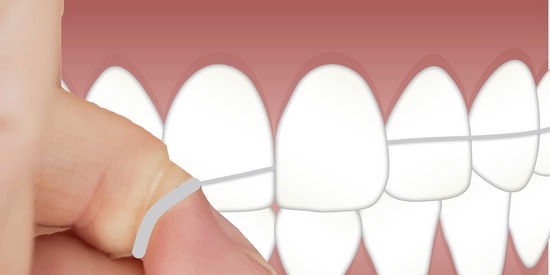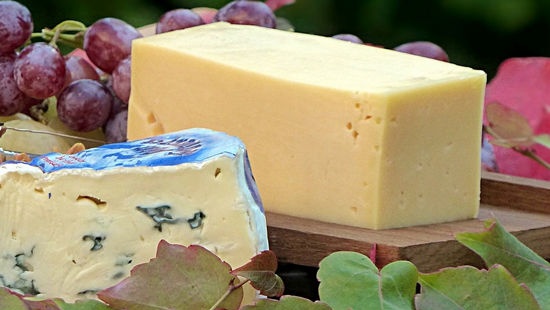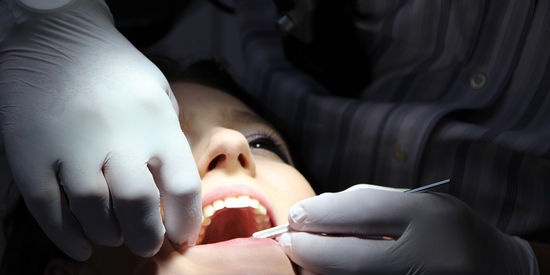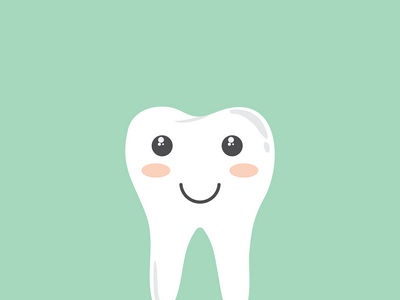5 ways to keep your gums and teeth healthy |
|
It's not too late to start taking care of your gums and teeth. What can be done for their health? 1. We brush our teeth regularly.
Just a few minutes a day for prevention is the best we can do for our gums. We brush our teeth twice 2 times daily, and preferably after each episode of eating. We hold the toothbrush at an angle of 45 degrees and make movements perpendicular to the gum line, and not vice versa. If you can't brush your teeth, you should always carry sugar-free xylitol gum or a bottle of water with you. This will reduce the excess of harmful bacteria, restore the correct oral pH, and freshen your breath. 2. Don't forget about the thread.
While dental floss is not difficult to obtain, most people do not use it. This is a mistake and a risk. Unfortunately, even the best toothbrush will not clean out interdental spaces and nooks that can be flossed. Food debris contributes to the formation of plaque, and then calculus, pressing on the gum tissue, bacteria multiply in it, leading to numerous diseases. The result is bad breath, the formation of pockets, dystrophy of the gums, their inflammation, hypersensitivity and, as a result, periodontal disease. How important is dental floss, research confirms. They clearly show that people who regularly use floss to brush their teeth are less likely to develop heart disease than people who do not. 3. We use mouthwash.
The mouthwash will not only help keep your breath fresh, but also keep bacteria in your mouth under control. It is best to use a mouthwash with antibacterial and antiseptic properties. If liquids with added alcohol are unpleasant, that is, they are excessively dry or irritating, then we can replace them with coconut oil. Rinse your mouth with one tablespoon of coconut oil for 10-20 minutes and then spit it out. This will work in the same way as dental floss, as the oil flushes germs out of every corner of your mouth. The oil also contains a component that inhibits the growth of bacterial strains responsible for tooth decay, brightens teeth and freshens breath. 4. Cheese for breakfast and curry for lunch.
CheeseEaten at the end of a meal helps fight bacteria as it promotes the production of saliva, which acts as an additional protective barrier. Diet and foods can reduce the risk of plaque buildup. A healthy, if underrated, food is curry. Curry seasoning contains curcumin, which has antibacterial and anti-inflammatory properties. In studies of people using turmeric, the concentration of bacteria in saliva is lower, and they also have less plaque. The use of spices such as curry or turmeric should be avoided by people with inflammatory gum disease, and other changes in the mucous membrane and periodontal disease. Spicy spices can further exacerbate these ailments and irritate the mouth. 5. Visit to the dentist!
Regular visits to the dentist are best done every six months and should become a habit. It is worth remembering that only a specialist can diagnose developing diseases with confidence and carry out the necessary therapy. We will be able to constantly monitor the health of our teeth and gums. The doctor will remove tartar if necessary.Early diagnosis of periodontal diseases, reducing the risk of their occurrence is important. Taking care of your teeth and gums is a lifelong investment. V. Ivanov Similar publicationsRead nowAll recipesRead now |
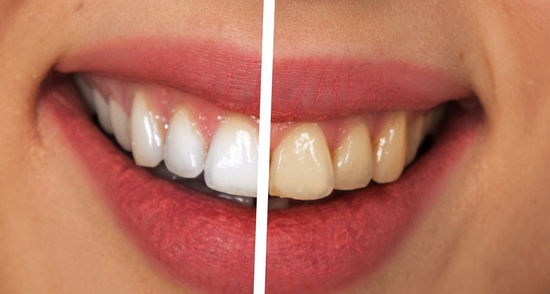 Gum health is essential for the normal functioning of the entire body. Neglecting them, we risk inflammation, periodontal disease, loss of teeth. Research is increasingly pointing to a link between gum disease and myocardial infarction or dementia.
Gum health is essential for the normal functioning of the entire body. Neglecting them, we risk inflammation, periodontal disease, loss of teeth. Research is increasingly pointing to a link between gum disease and myocardial infarction or dementia.
